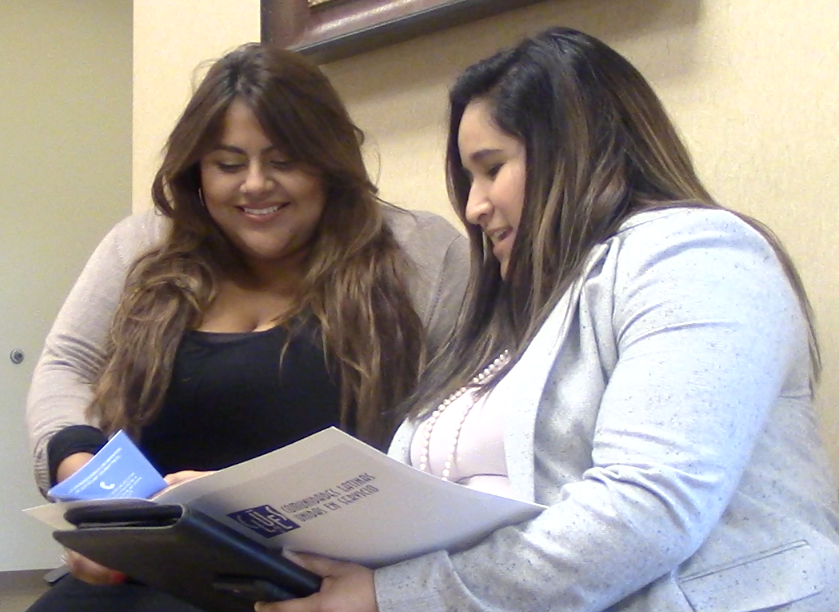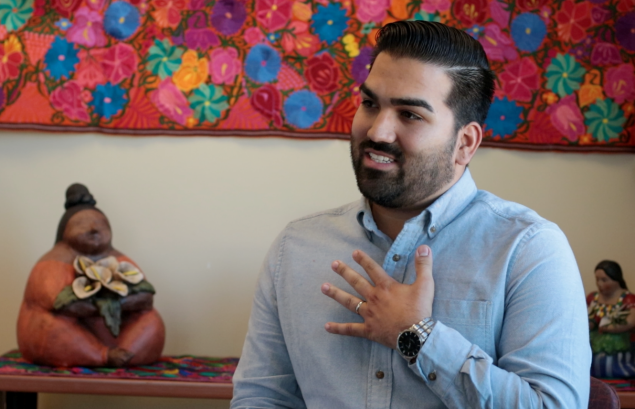Commercial Tobacco Use
Tobacco Topics
- Behavioral Health and Commercial Tobacco
- COVID-19 and Commercial Tobacco
- E-cigarettes and Vaping
- Flavored Commercial Tobacco Products
- Menthol Commercial Tobacco Products
- Nicotine and Nicotine Dependence
- Secondhand Smoke and Aerosol
- Traditional and Sacred Tobacco
Related Topics
Contact Info
Latino Culture Informs Effort at CLUES to Help Smokers Quit
Health disparities, including higher rates of tobacco use, disproportionately affect Latinos in Minnesota, especially among LGBTQ Latinos and Latinos living with mental illness.
Now ground-breaking efforts to understand and address the cultural influences around tobacco use are being made by Comunidades Latinas Unidas En Servicio (CLUES). CLUES is a community organization that specializes in assisting families, immigrants, refugees, and other Latinos to be healthy, prosperous, and engaged in their communities. “We are where the community lives, eats, works, and plays,” observed Carla Kohler, CLUES’ Associate Director of Community Health and Wealth.
 The organization is one of eleven recipients of a Tobacco-Free Communities (TFC) grant from the Minnesota Department of Health, a program to reduce and prevent youth commercial tobacco use and address tobacco-related disparities in Minnesota. The program is part of a growing movement to promote community-driven tobacco prevention and control activities and strategies. As an integral part of the community, CLUES staff members bring rich cultural wisdom to their outreach and research into anti-smoking efforts.
The organization is one of eleven recipients of a Tobacco-Free Communities (TFC) grant from the Minnesota Department of Health, a program to reduce and prevent youth commercial tobacco use and address tobacco-related disparities in Minnesota. The program is part of a growing movement to promote community-driven tobacco prevention and control activities and strategies. As an integral part of the community, CLUES staff members bring rich cultural wisdom to their outreach and research into anti-smoking efforts.
Kohler and the organization’s Tobacco-Free Communities Coordinator, Raul Fernandez, have already deepened their understanding through a series of interviews and listening sessions with community members and mental health providers.
More access to culturally competent treatment is needed
CLUES research is showing that Latinos who suffer from a mental illness, who have a history of trauma, and those who struggle with their sexual identity share two common obstacles, according to Kohler. First, finding culturally competent health care workers to refer or provide treatment options for tobacco use and addiction; second, overcoming attitudinal barriers that perpetuate tobacco use. CLUES is developing culturally based approaches to both.
 In interviews with mental health and health care providers Fernandez has been raising awareness about the harms of tobacco use in the community, and is encouraged that clinicians are willing to offer more and better tobacco cessation options to their mental health clients. According to Fernandez, “One clinician told me that, prior to our interview, she had not been prioritizing this situation with tobacco use in her practice,” and she was going to change that.
In interviews with mental health and health care providers Fernandez has been raising awareness about the harms of tobacco use in the community, and is encouraged that clinicians are willing to offer more and better tobacco cessation options to their mental health clients. According to Fernandez, “One clinician told me that, prior to our interview, she had not been prioritizing this situation with tobacco use in her practice,” and she was going to change that.
The staff at CLUES have now also added tobacco use questions to their standard intake process, hoping to identify more community members interested in cessation services. This also helps community members see that quitting services are available for them—and for all Minnesotans, not just for the mainstream population.
Cultural attitudes and stress can contribute to tobacco use
Mental illness can be associated with stress, and be a factor in tobacco use. Within the Latino community, people may experience the stress of working several jobs and having less time with family. They may also be coping with racism and the stress of acculturation. Some interviewees said they used smoking as a relief from stress, or for a break from their hectic lives. But Kohler also noted that it can be taboo in the community to seek care for mental illness or addiction, including help with tobacco cessation, so CLUES is finding ways for people to feel more comfortable seeking services.
Stress also comes from cultural attitudes around various sexual identities, something that particularly affects LGBTQ youth and college-age young people. Fernandez says strategies are needed for overcoming the stresses and stigma suffered by community members, strategies that offer alternatives to tobacco use. “This is anti-tobacco, not anti-smoker,” said Fernandez. “We want to welcome smokers, and help them live lives free of tobacco.”
Resilience and family are community strengths for overcoming future tobacco use
The Tobacco-Free Communities grant also provides CLUES with resources over five years to identify cultural assets that support tobacco prevention and cessation. This health assessment research will frame and shape their anti-tobacco communications campaign.
For example, when asked about quitting, some community members responded that a passion for family gave them a purpose and a motivation to quit. The communications campaign that CLUES is developing will have messages about how strong family ties are a strength that community members can draw on.
“Our community is resilient, we are very family-oriented,” Kohler observed. “Coming together and supporting one another will help us through our quitting journeys.”
Learn more about CLUES at www.clues.org.
Download this story: Latino Culture Informs Effort at CLUES to Help Smokers Quit (PDF)
More stories about community grantees
The Tobacco-Free Communities Grant Program funds local community grants and technical assistance and training grants that aim to reduce and prevent youth tobacco use and address tobacco-related disparities in Minnesota by promoting community-driven tobacco prevention and control activities and strategies.
Learn more about the Tobacco-Free Communities Grant Program and read grantee stories featuring their work throughout Minnesota communities.